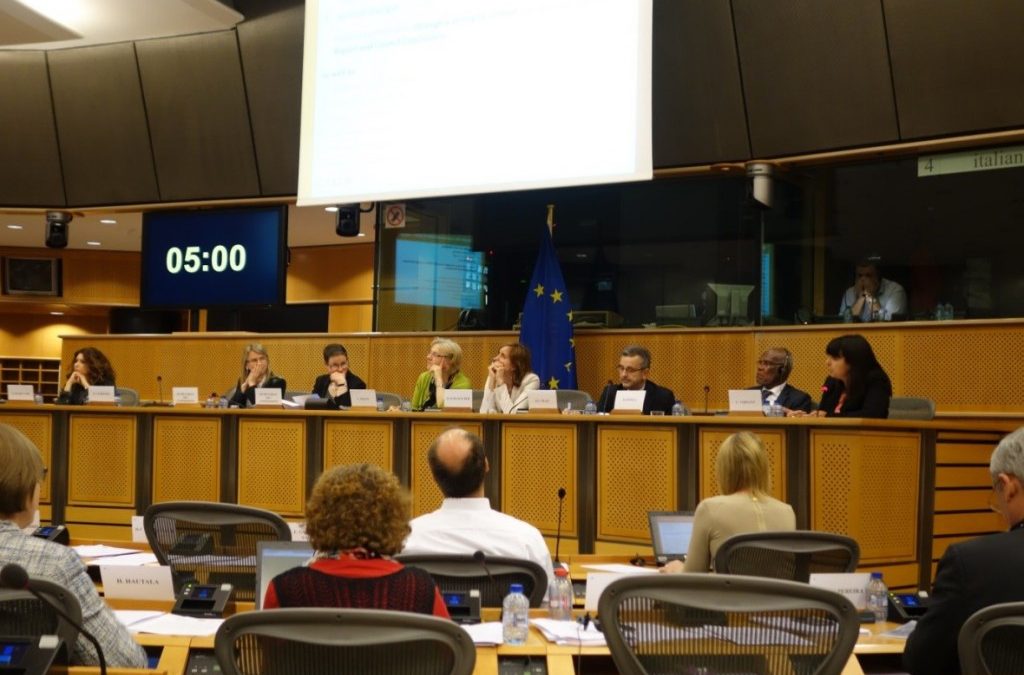 On Tuesday June 24th, I represented CONCORD Europe (the group in Brussels representing European development NGOs) at the European Parliament Development Committee for a hearing on gender equality and development – and in particular the upcoming EU Gender Action Plan.
On Tuesday June 24th, I represented CONCORD Europe (the group in Brussels representing European development NGOs) at the European Parliament Development Committee for a hearing on gender equality and development – and in particular the upcoming EU Gender Action Plan.
Together with Dagmar Schumacher, the head of UN Women in Brussels, Federica Petrucci, and Jean-Louis Ville, both working with the European Commission, and Members of the European Parliament, we discussed the upcoming opportunities for the EU to put gender at the core of the Union’s foreign policies; in particular, looking towards the negotiations in Addis on Financing for Development and the major UN General Assembly in New York on the Sustainable Development Goals in September, but also the landmark UN Conference on Climate Change in Paris. With a common understanding that gender equality and women and girls’ empowerment are both an end and a means for sustainable development, we all stressed the need for concrete commitments for dedicated resources, including financing for targeted actions and mainstreaming of gender.
EU Gender Action Plan: where are we now?
The EU’s new Gender Action Plan (GAP 2), will replace the current plan that was launched in 2010 and will have to be translated into all EU funding instruments. The new GAP will be the flagship instrument for the EU to implement all its commitments relating to achieving gender equality. However, as the colleagues from the European Commission highlighted in their contribution, lessons need to be drawn from the current gender plan, including: a lack of firm political commitments, a lack of financial resources, and a lack of expertise within the EU delegations on gender mainstreaming and gender responsive budgeting. Recommendations are not missing but political commitment and respective fulfilment will be the key to any future action plan.
EU Gender Action Plan: what do we need?
The first step towards a strengthened gender action plan would be to adopt a robust plan with concrete financial commitments, drafted as a “Communication” to give it more political weight, engaging all EU institutions in an inter-institutional dialogue and making it more politically relevant than if it were published as a mere internal document for the European Commission. Framing in the latter format would commit only the Commission’s services responsible for development cooperation . There is is not much time to make sure that the plan comes as a Communication, as the decision on the status is expected in the coming days by the European Commission and the final EU gender action plan due in September or October 2015.
Additionally, the commitments that will be put forward will have to be adequately translated into all other EU programmes, so that the same shortcomings we have experienced since 2010 are not repeated.
We are also eager to see how recent and strong commitments on gender put forward by EU ministers recently will be translated in the much-anticipated gender action plan.
Stay tuned!
To hear the debates on gender in Development, see:
http://www.europarl.europa.eu/ep-live/en/committees/video?event=20150623-1500-COMMITTEE-DEVE
